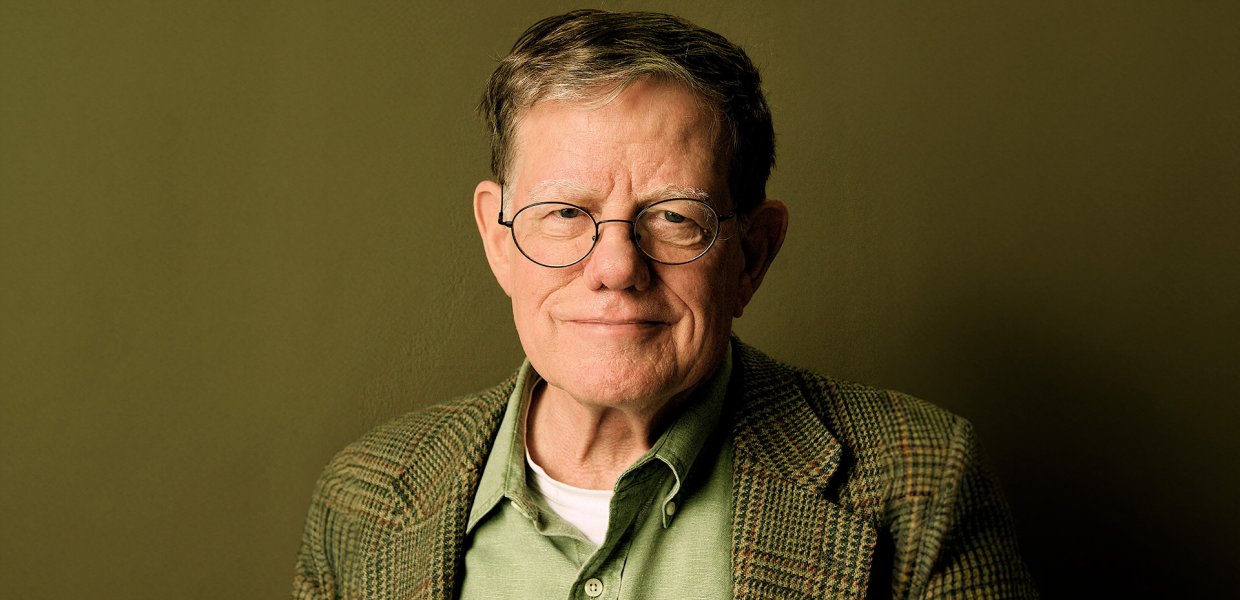Larry Pryor, a visionary professor and multimedia pioneer who dedicated his professional life to advancing digital journalism and environmental reporting, has died at the age of 85.
Pryor died on July 13 in Fountain Valley, Calif.
A writer and editor at the Los Angeles Times for more than 20 years, Pryor served as the news editor of latimes.com and established himself as one of the leaders in newspaper internet information. While still at the Times, Pryor began training and mentoring future journalists as a part-time lecturer at USC Annenberg in 1987. He was instrumental in developing the school’s first online journalism program that integrated digital technology into a curriculum with more than 10 new classes; he became the program’s full-time director in 1997.
Alongside his focus on journalism’s digital future, Pryor also studied climate change communication, an outgrowth of his work as an environment writer at the Times. In particular, he examined ways that visual information and internet discourse can influence public perspectives on the environment. At USC, he convened an ad-hoc multidisciplinary group — the Earth Science Communication Initiative — which hosted ClimatePalooza, a Visions & Voices program with climate communicators at the Jet Propulsion Laboratory.
“Larry was a pioneer in digital journalism and digital journalism education, as well as being one of the first journalists to recognize the importance of environmental reporting,” said Willow Bay, dean of USC Annenberg. “We are so fortunate as a school to have benefitted from his deep expertise as well as his extraordinary foresight that helped successfully lead us toward and into a 21st-century media landscape.”
Gordon Stables, director of the School of Journalism, further reflected on how far ahead of his time Pryor was.
“Larry was writing stories in the ’70s and ‘80s that today would be understood as part of a ‘climate’ or ‘sustainability’ beat,” Stables said. “It's not a surprise that when he joined our faculty, he made it a priority to teach students journalism’s essential role in improving public communication about climate change and environmental sustainability. Larry’s wisdom — to understand that scientific and broader communities need to know each other and trust each other to truly serve the public good — remains prophetic to this day.”
In 1998, with the support of a Ford Foundation grant, Pryor established the Online Journalism Review (OJR), which quickly became the definitive source for information on internet websites. Four years later, he received a grant from the U.S. Department of Education for the creation of OJR’s sister publication, the Japan Media Review, which featured reporting by bilingual writers and editors who could bring news and developments in Japanese media and technology to an English-speaking audience.
Pryor also explored how new applications of digital technology could be used to tell news stories. He collaborated with USC Viterbi’s Integrated Media Systems Center to build and use a 360-degree camera to produce a mini documentary of life on Skid Row, one of the first examples of virtual reality in journalism.
“Larry pushed the digital envelope repeatedly at USC,” said Joe Saltzman, professor of journalism. “He was a visionary who was years ahead of his time when it came to reinventing journalism.”
Saltzman also praised Pryor for his life-long dedication to upholding the profession.
“Larry was one of those rare journalists who cared about everything and everyone,” Saltzman continued. “Larry was the kind of old-fashioned journalist we seldom see anymore: he valued the importance of using language effectively, of verifying even the most trivial of facts, or always getting the quote accurately, of never letting personal opinion or prejudice color his stories.”
In the final years before his retirement in 2016, Pryor was instrumental in developing the school’s one-year MS in Journalism program. Together with Professor of Professional Practice Vince Gonzales, Pryor conceived and introduced JOUR 528, the program’s Summer Digital Journalism Immersion course that orients and familiarizes students with the best practices and standards of cutting-edge multimedia, multi-platform fact gathering, reporting and storytelling. Pryor also taught the first-ever course on science, technology and the environment for the MA in Specialized Journalism program.
“Larry was a firm believer that in order to accurately report on a changing world, the field of journalism had to change as well,” said Gonzales, who serves as associate dean of student affairs. “He encouraged working journalists to join our graduate programs because he believed reporters needed to be life-long learners if they wanted to stay relevant, have impact, and reach current and future news consumers.”
Gonzales also remembers Pryor as one of his first mentors at USC
“Larry had a huge heart,” Gonzales said. “He believed journalism should be used to make the world a better place and he wanted that to be a role that continued in the face of the many changes sweeping our industry. I hope that I am doing his vision justice every time I step into a classroom or interact with students.”
Throughout his career, Pryor was a devoted teacher, who was recognized with awards from USC, including Best Adjunct Instructor and Outstanding Faculty Award for Excellence in Education.
“Larry was a first-rate teacher,” said alumnus and adjunct instructor Kirk Stewart, founder and CEO of KTStewart. “I had the privilege of having him as an instructor during the first year of my graduate studies in public relations at USC. He, plain and simple, taught me how to write the right way.”
Pryor earned his bachelor’s degree in English literature from Stanford University and his master’s from Columbia University’s Graduate School of Journalism. He began his career at the Louisville Courier-Journal in Kentucky.
Pryor is survived by his wife, Gaby, and two sons Benjamin and William Pryor.
A memorial service will be planned in the coming months. Further information is forthcoming.
